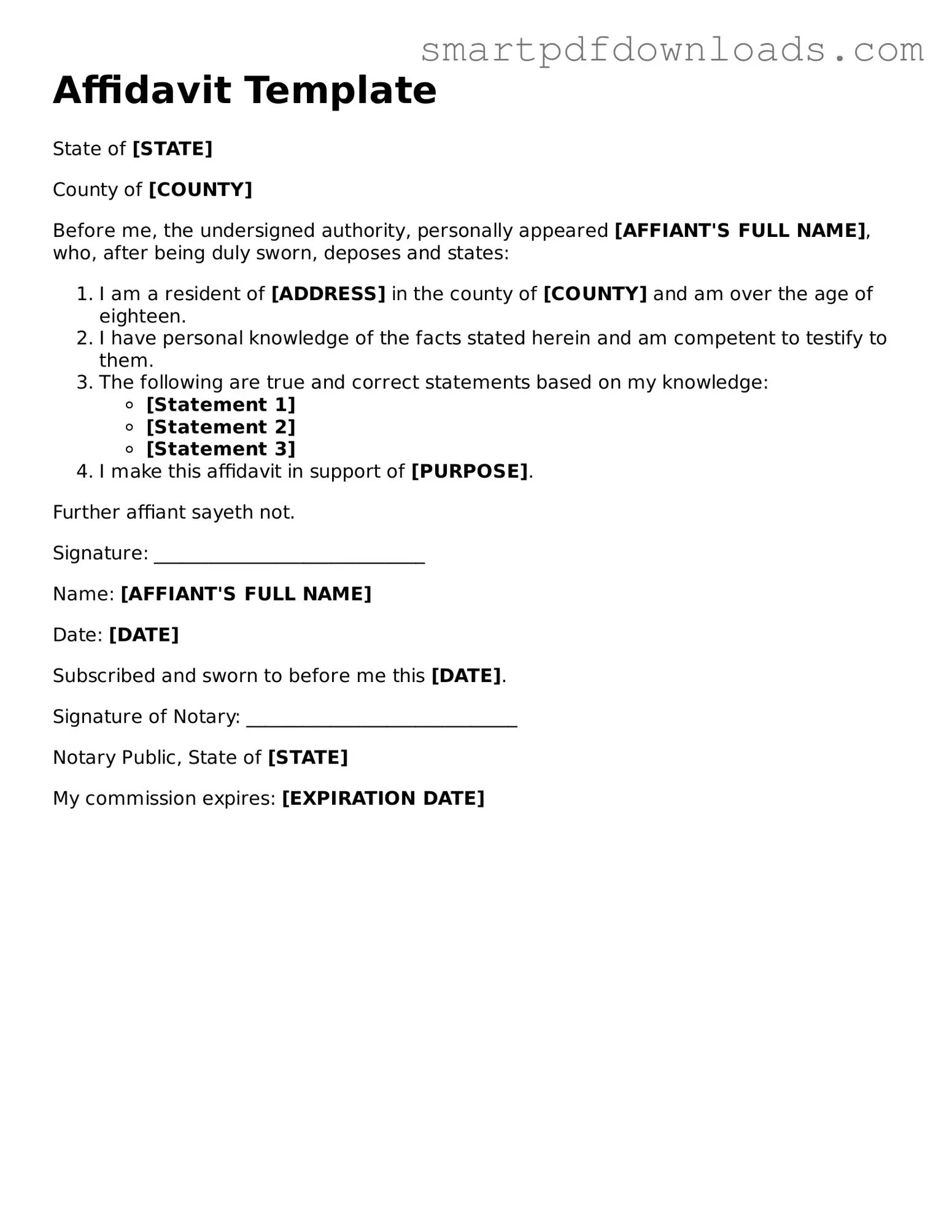Free Affidavit Form
An affidavit is a written statement made under oath, used to present evidence in legal proceedings. This document serves as a means for individuals to declare facts they believe to be true, which can then be used in court. Understanding the purpose and structure of an affidavit is essential for anyone involved in legal matters.
Edit Affidavit Online

Free Affidavit Form
Edit Affidavit Online

Edit Affidavit Online
or
⇓ PDF File
Finish the form and move on
Edit Affidavit online fast, without printing.